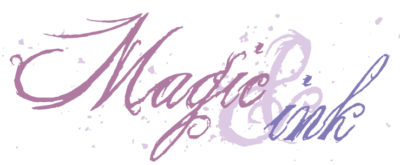
Twenty years ago, when “Xena: Warrior Princess” was a staple of my viewing schedule, I never would have dreamed that we would have such a rich array of fantasy on television today. Back then, I watched every fantasy show that aired, regardless of quality, as a matter of principle. “If they see there’s an audience for fantasy, they’ll make more,” was my thinking. It wasn’t hard, because there wasn’t a lot. These days, I have to pick and choose what I watch because there’s simply not enough time 1to consume it all.2
It’s great to be in such a glut, because it means more traditional critics are forced to pay attention to fantasy, whether they like it or not. Essays like today’s New York Times piece by Carlo Rotella, a Boston College English professor, “Good Fantasy Writing Is Pure Magic,” wouldn’t happen if fantasy wasn’t generating a lot of money.
It’s hard to tell if Rotella is actually a fan of fantasy, but I do agree with a lot of what he has to say, particularly about how “…language is the most underrated special effect” rings true with me.
While Hollywood’s fantasy productions showcase amazing special effects and design, the writing often leaves much to be desired. Much of the time, it’s a deliberate choice to make the story accessible to the wider audience. The new Disney+ series “Willow” falls in this camp, I think, with characters spouting anachronistic dialog like, “You’re gonna have to suck it up,” and “You know, your generation has, like, zero attention span for-for epic tales.” It can be funny, sometimes, but it also undermines the world building, breaking the spell of otherworldliness that the visual designers of the film have worked so hard to create.
As Rotella points out, “… our most enduringly potent fantasies consist of words, and part of their potency lies in inviting your imagination to do the work.”
Reading a fantasy book demands a lot of the reader, which is a big part of why it’s so satisfying 3. Translating words and sentences on a page into a story in your head is a particular kind of magic, and when you add imagining whole new worlds and histories and magic on top of that, it really is asking quite a lot. The best fantasy writers know that language itself is a spell they can use to help readers with this work — Rotella talks about E.R. Eddison, but I’ll point to Patricia A. McKillip as a good example of lyrical prose that helps transport you into the world of the story.
A fantasy film does not require nearly as much from the viewer, only the temporary suspension of disbelief needed to accept the “realness” of the story presented on screen. But bad dialog — or anachronistic speech in otherwise good dialog — can interrupt that suspension of disbelief and keep you from engaging fully with the story. It’s jarring, making you think more about the storytelling instead of the story. It might be a fun and entertaining story, but it can’t transport you in the profound way that the best fantasy fiction can.
I’m sure that Hollywood producers and directors aren’t really thinking about the profundity of fantasy when they budget the millions of dollars it takes to produce any of these shows — in their point of view, the spectacular gloss is what brings people to the screen. They want to attract viewers, not transport them. And maybe that’s OK for most of those people who never read fantasy books, but for those of us used to the magic all in our minds, it is a disappointing experience.
Hopefully, time, experience and critical attention will help producers realize that their scripts are just as important as the special effects and design elements of their fantasy tales. Game designers have figured this out, so I am pretty sure Hollywood can too.
